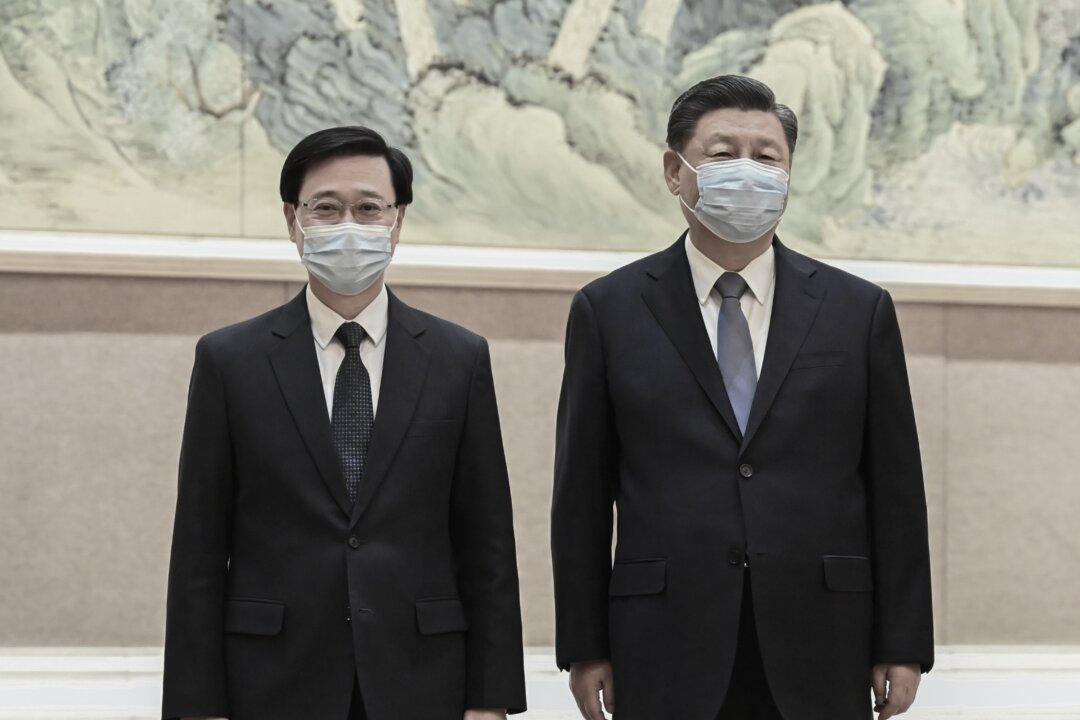Hong Kong’s new chief executive John Lee met with the president and editor-in-chief of the China Media Group (CMG) on July 1. Meanwhile, numerous other media organizations were denied access to cover Chinese leader Xi Jinping’s visit to the former British colony on the 25th anniversary of its handover to China.
At Government House, John Lee met and thanked Shen Haixiong, the president and editor-in-chief of the CMG and the Vice Minister of China’s Publicity Department of the Central Committee.





